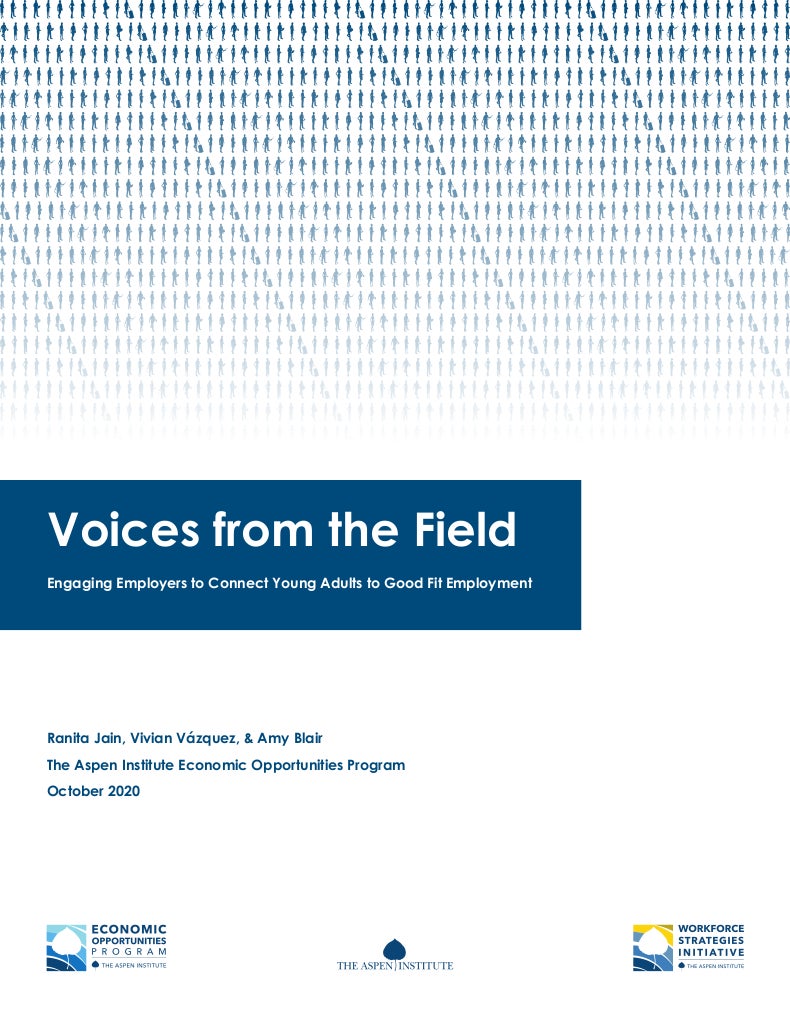America’s youngest workers are facing the most dire employment prospects since the Great Depression. At the start of 2020, nearly five million young people ages 16-24 were neither enrolled in school nor working. Today, their unemployment crisis has been greatly exacerbated by the pandemic. This disconnection, both before and after the arrival of COVID-19, has had an outsized impact on young workers of color. Across the country, workforce development and education providers are scrambling to meet the needs of these young people. Now more than ever, they need accurate information on available employment, including wages, health insurance, paid leave, scheduling, and safety, among other things.
This report compiles insights from workforce professionals about the types of questions they ask employers. 210 workforce professionals in Cleveland, Indianapolis, and Philadelphia responded to a survey about the kinds of conversations they have with business representatives on topics related to workplace practices, environment, and equity and inclusion in the workplace. Although the survey that informed this publication was conducted before the pandemic, the questions are increasingly relevant and important today.
Share
Tweet Report: “Voices from the Field: Engaging Employers to Connect Young Adults to Good Fit Employment” by @RanitaJain1, @VivianPVazquez, and @amyblair63 at @AspenWorkforce. Featuring @AECFNews’ #GenWork partners @joincollab, @GoodwillIndy, and @TowardsEmploy.
Tweet Asking employers the right questions can help identify good-fit opportunities for young adults. #Wkdev professionals in #GenWork communities share their insights.
Tweet America’s youngest workers, particularly young adults of color, are facing their most dire employment prospects since the Great Depression. #wkdev professionals are working with employers to find good-fit jobs that meet young people’s needs.
Tweet Now more than ever, young adults need to know which jobs offer good pay, health insurance, paid leave, flexible scheduling, and safe conditions. Read how #GenWork communities are supporting this work locally.
Tweet Wages, benefits, advancement, equity, and inclusion. What questions are #wkdev professionals asking employers? A report on @AECFNews’s #GenWork partners offers a window into these key conversations.
Tweet Researchers at @AspenWorkforce heard from 210 #wkdev professionals in Cleveland, Indy, and Philly about the questions they ask employers—job opportunities, workplace practices, equity and inclusion, and more. Here’s what they said.
Learn More
Research and evaluation conducted by the Workforce Strategies Initiative (WSI) explore strategies that help workers attain stability and mobility, including through training, education, and broader systems change. WSI is an initiative of the Economic Opportunities Program.
The Economic Opportunities Program advances strategies, policies, and ideas to help low- and moderate-income people thrive in a changing economy. Follow us on social media and join our mailing list to stay up-to-date on publications, blog posts, events, and other announcements.


